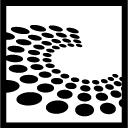ox4 - Final Version
Free Software and Beyond
The World of Peer Production
| Speakers | |
|---|---|

|
Silke Meyer |
| Schedule | |
|---|---|
| Day | 2 |
| Room | Humanities Bridgeford G7 |
| Start time | 14:30 |
| Duration | 01:30 |
| Info | |
| ID | 26 |
| Event type | Lecture |
| Track | Aspects of Free Software |
| Language | English |
"Peer reproduction"?
Key signing parties between trust, subtle othering and control

Key signing parties are a ritual belonging to encrypted electronic communication. Talking about the participants' otherness is an integral part of those parties where the degree of belonging to the free software community is assessed by way of criteria that are deeply embedded in mainstream society.
Key signing parties are a ritual belonging to encrypted electronic communication. They take part during congresses or big meetings of the free software community. During a key signing party all participants verify mutually their identity by showing each other their passports. The aim is to enlarge the so called "Web of Trust", a network of individuals who can want to be sure about the 'true identity' of their electronic communication partners. The ritual is characterized by seriousness, diligence and obedience to rules. The "Web of Trust" appears to unite all those who stress their consciousness of data being "sensitive" against the unaware masses and the transition towards a surveillance society. Ironically the only certificate that proofs one's identity is issued by states: At key signing parties the passport becomes the center of attention. The possibilities it offers to talk about are family background, appearance and gender. Talking about otherness becomes therefore an integral part of key signing. Two sorts of "others" are produced in the ritual: Those who are not trustworthy (enough) and those who deviate from the average participant because of their background or body. Trust is expressed in the graduated cyphers of Gnu Privacy Guard (gpg). I assume that during key signing the degree of belonging to the free software community is assessed by way of criteria that are deeply embedded in mainstream society. In my presentation I will discuss in how far this practice of othering can be observed also in other parts of the community and what this means for the democractic and emancipatory potential of the free software movement.
